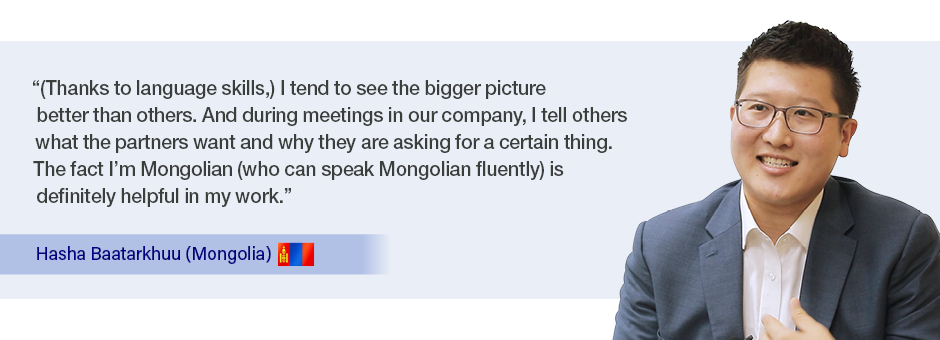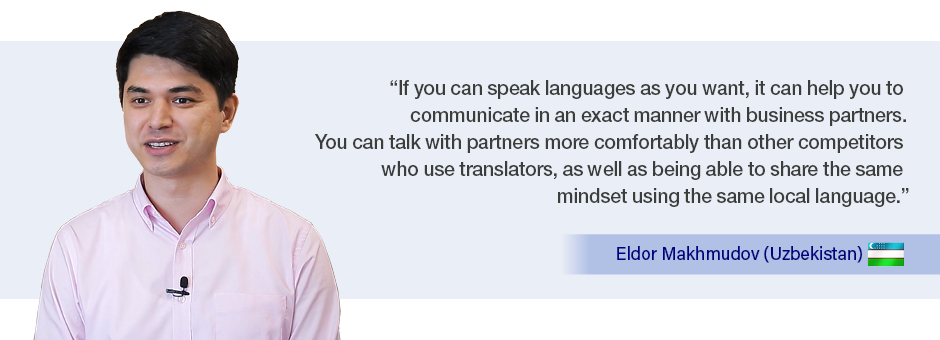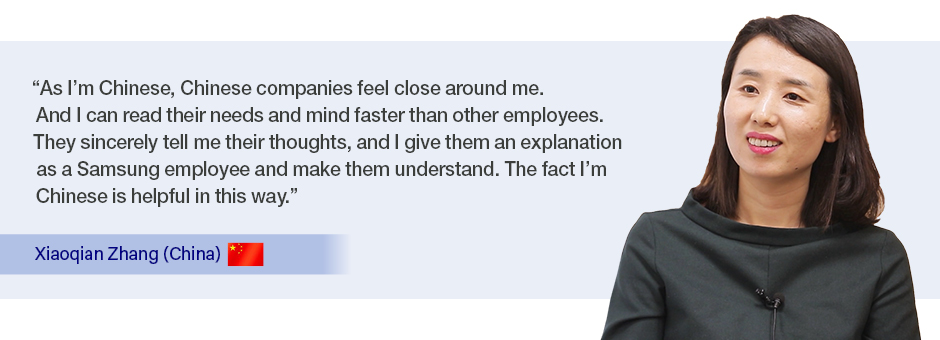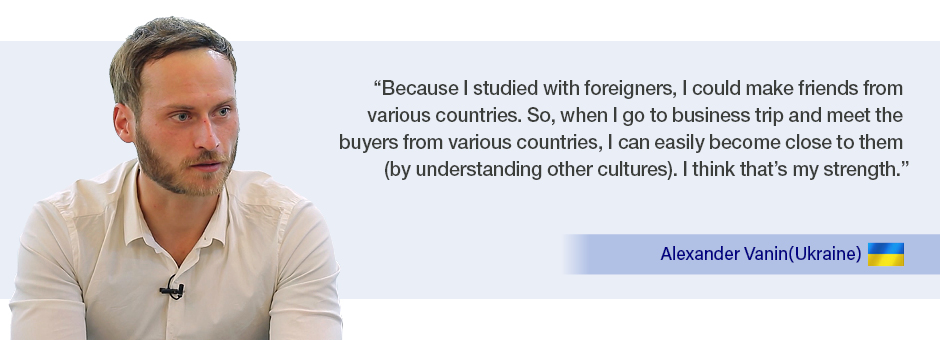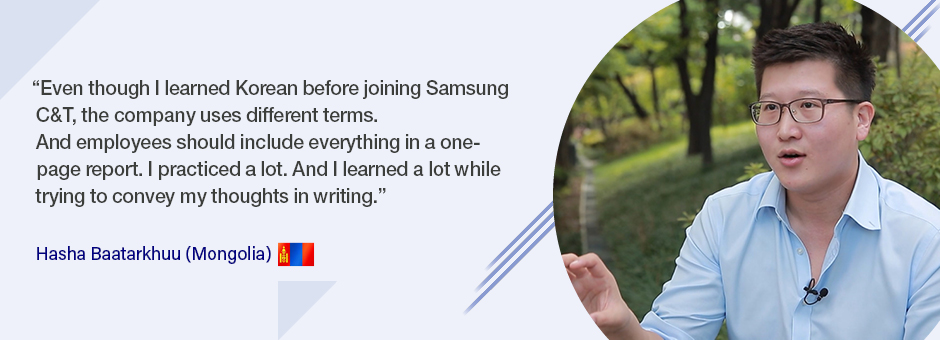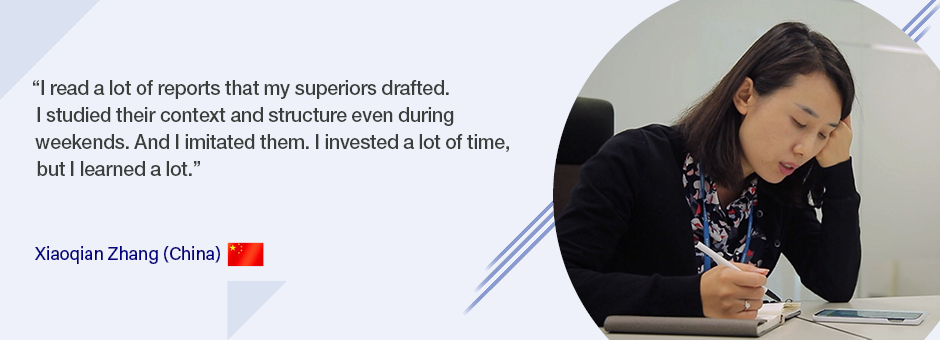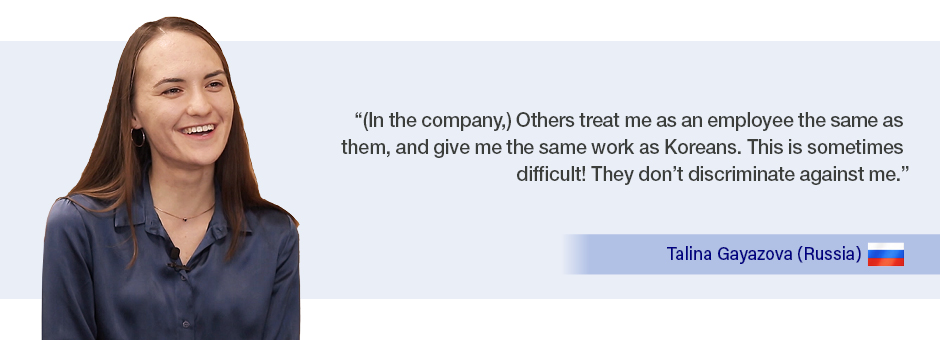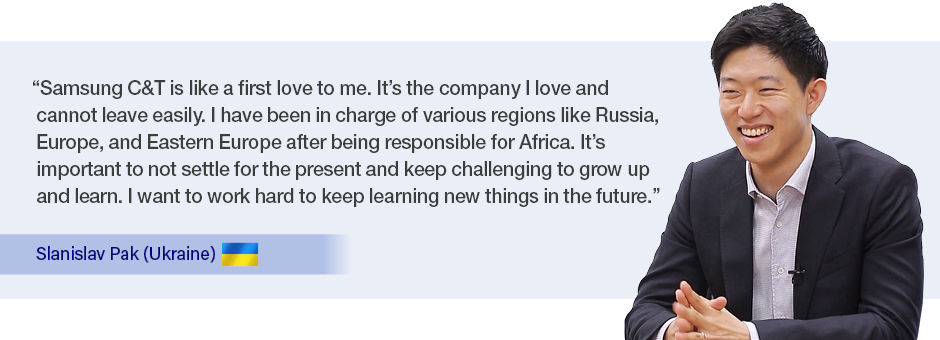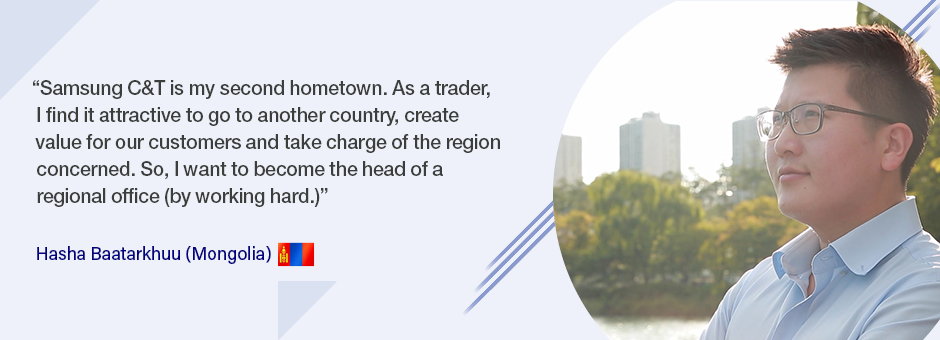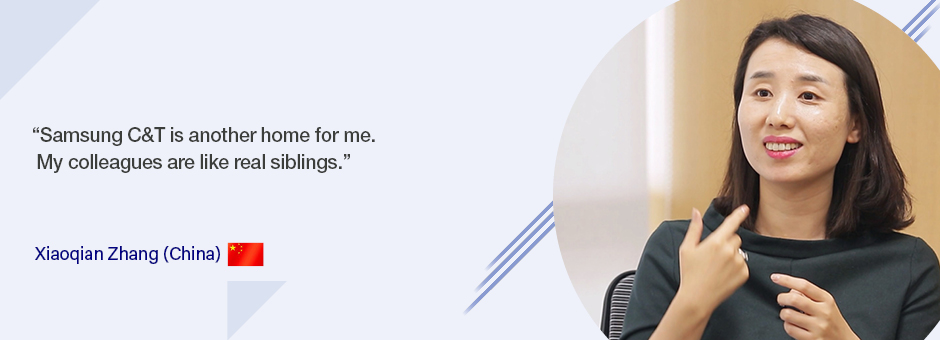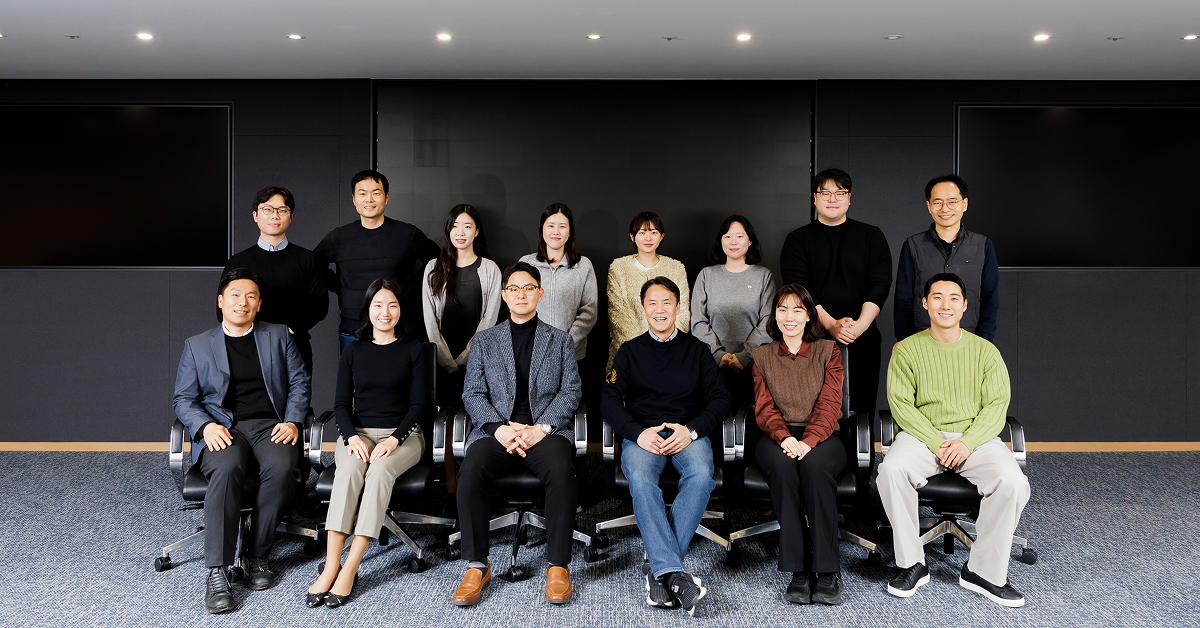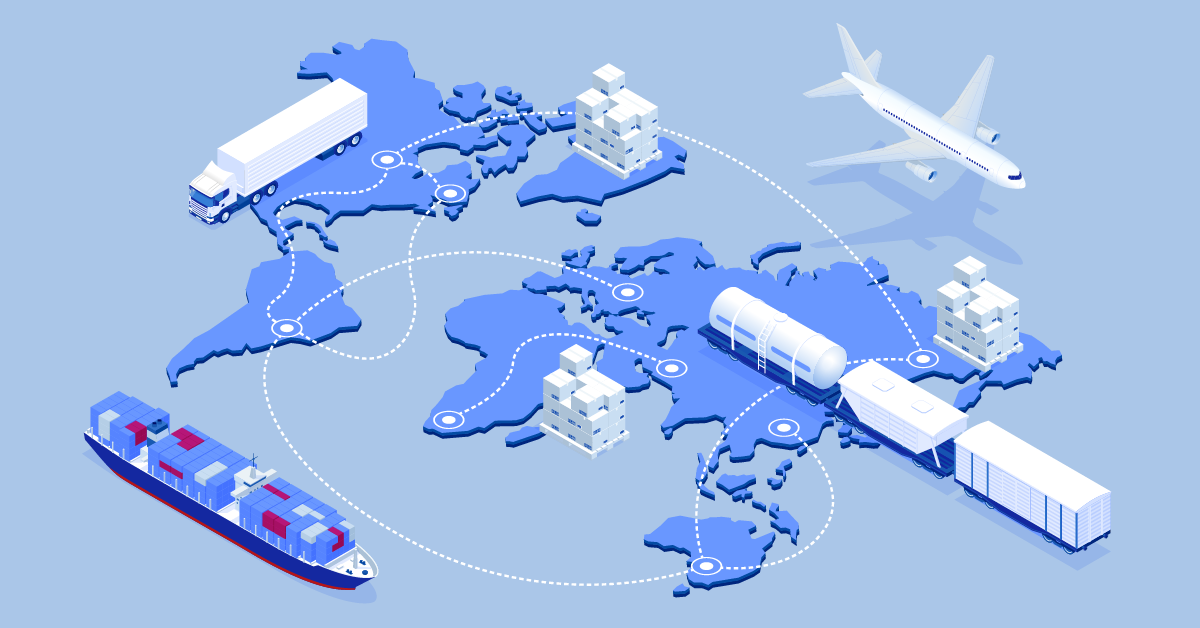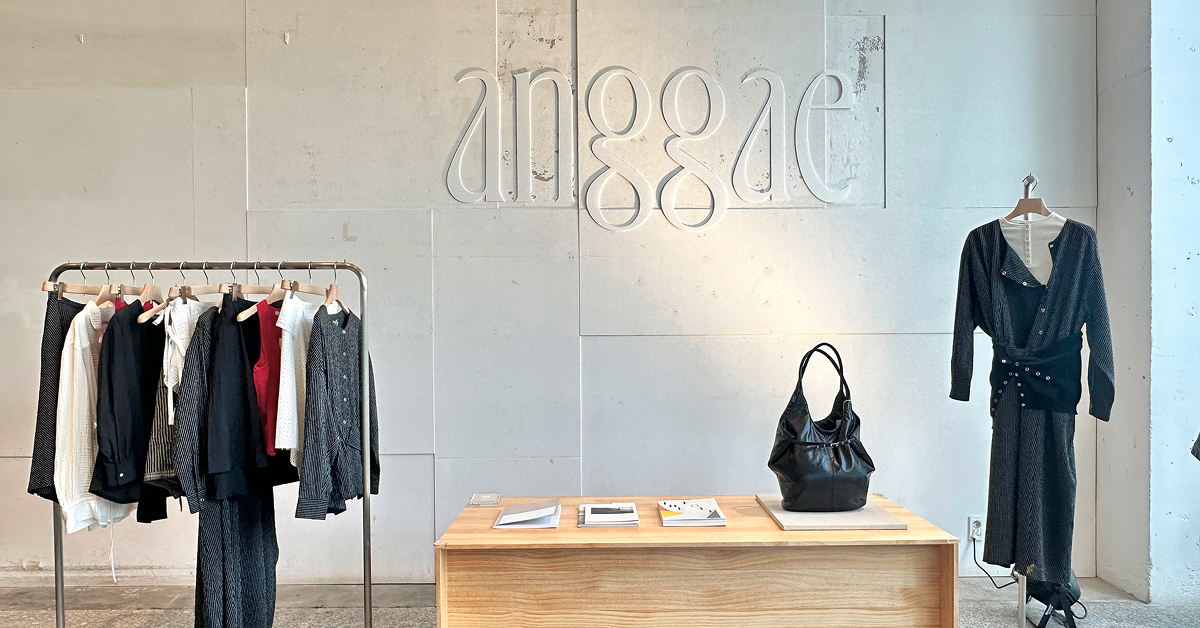Samsung C&T Trading & Investment Group’s global footprint is highlighted by an international network of 90 offices across 45 countries. This abundant network allows the company’s traders to play active roles worldwide. And like Samsung C&T’s numerous Korean traders who do their business abroad, there are those who came to Korea from various countries to pursue their dreams.
So, what is life like for those global employees working in Seoul? Let’s look at their strengths and see how they’re adapting to a Korean company. And also, check out the English-subtitled videos below to find out more about the lives of these Samsung C&T employees…
Power of language in a global business environment
A trading company seeks to offer the most appropriate solutions by finding out the needs of the market based on its relationships with people and overseas network. By its nature then, a trading company’s business is global.
For traders, fluent language skills are essential for meetings and negotiations with global partners, reviewing various contracts, and communicating with local employees in overseas branches. Global employees can help ensure smooth operations at Samsung C&T when they are fluent in various languages, including their mother tongue and Korean. It’s not just about basic communication – it’s a case of winning over a partner’s heart.
Hasha Baatarkhuu, who works for the company’s copper division, has been with Samsung C&T for five years. Originally from Mongolia, he can speak four languages: Korean, English, and Russian in addition to his native language Mongolian. He believes these language skills offer an advantage and help a lot with partners abroad.
Eldor Makhmudov, from Uzbekistan, joined the company in 2012 and is in charge of buying coal in Russia and selling it in Asia. He also feels there are strong benefits that come with being able to communicate in several languages. He explains that such skills help to attract counterparts to “our side” when doing business.
A bridge connecting different cultures
As mentioned above, Samsung C&T’s global business requires traders to be sensitive to the different cultural backgrounds of various partners.
For example, when you have a meeting with a Saudi Arabian partner, it’s important to avoid a clash with prayer time when making an appointment. Regarding Thailand, a patient approach is needed – it can take up to two months to actually meet the person in charge, and negotiations should not be hurried. As for Myanmar, people there often prefer communicating through a phone call or voice message rather than text, so it’s better to use messenger apps that include a calling function when contacting partners.
Based on their deep understanding of Korean and overseas cultures, global employees can have an edge when it comes to building positive relationships with partners abroad. Xiaoqian Zhang works in textiles, having been with Samsung C&T for 11 years. She shines when doing business with partners from her home country, China.
Alexander Vanin is from Ukraine and works in the company’s steel division. Having joined three years ago, he is the newest among Samsung C&T’s global employees based in Seoul. He says the experience of studying with friends from various countries has helped him to deal with foreign buyers.
From foreigner to Korean company employee
All these advantages don’t mean it’s easy for anyone to just come from abroad and slot in at a Korean company. There are numerous cultural aspects to get used to aside from building local language skills. The global employees at Samsung C&T Trading & Investment Group’s Seoul office all had a head start because they either studied in Korea before joining the company or lived in the country for a while.
Xiaoqian Zhang, for example, has lived in Korea for 16 years, while Hasha Pro’s stint so far has lasted 11 years. Even relative newcomer Alexander Vanin studied in graduate school in Korea through the Korean government’s scholarship program.
That said, though they got used to the Korean language and culture before taking up their Samsung C&T jobs, it was a different challenge to actually work there in a Korean company. There were significant challenges to overcome, from writing reports in Korean to fully understanding and adapting to Korean business culture.
In this way, global employees had a chance to develop further through the process of adapting to life at the company.
Aspirations as a member of Samsung C&T
Global employees working in the company’s Seoul office certainly feel like they’ve now settled in. Talina Gayazova comes from Russia and works in healthcare business development. She senses that she’s not even viewed as “different” any more.
It’s this experience of being given projects regardless of nationality that is fair and also gives global employees the chance to develop and reach for higher aspirations. Slanislav Pak from Ukraine is in his seventh year in the company, working in the fertilizer division. He started out with a project to export fertilizer to the African market, managing to open new business opportunities. And his success so far fills him with optimism for the future at a company he describes with great affection.
On the other hand, others have more precise goals in mind, like Hasha Baatarkhuu.
So, it seems that it really is possible to find a home away from home, as global employees keep using that type of language to reflect on how settled they are. It’s like they’ve even found a new family.
No doubt such meaningful bonds between employees of all nationalities do create a familylike environment in the office, while good relationships with partners make solid business ties. With this in mind, may the bridge formed by global employees grow ever stronger!


